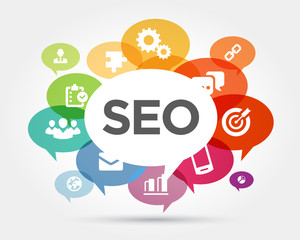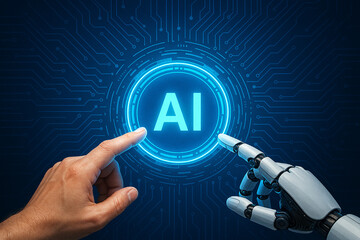Search is no longer about words alone. It’s about understanding intent hidden behind every query. The modern digital landscape thrives on anticipation, not repetition. Helena SEO Pros has transformed from an algorithmic chase to a language of meaning and human connection.

In its earliest form, SEO relied on mechanical repetition. Keywords were weapons, and visibility was a formula. But the digital audience grew wiser, and so did search engines. What was once a predictable system became a realm ruled by context, engagement, and authenticity.
Today, SEO speaks through behavior. It listens to how users interact, scroll, and pause. Algorithms now map curiosity more than structure. The digital world rewards resonance over reach.
New trends in SEO are not visible—they are felt. Voice search whispers its way into strategies. AI interprets emotion from data. The rise of semantic indexing means that even unspoken ideas carry weight. Every phrase has a pulse, and every search reveals a heartbeat of intent.
The structure of content now breathes with purpose. Pages must guide, not just inform. Search engines no longer reward content that screams keywords; they embrace content that listens first. Intent-based optimization means crafting experiences, not just writing words.
Mobile-first indexing redefined what matters most. A page’s worth is now measured in seconds of attention. Fast-loading, adaptive designs shape the modern SEO battlefield. If a site hesitates, the user vanishes, and the algorithm notices.
Another silent revolution is happening beneath the surface. Search personalization is no longer optional—it’s a dynamic force. Each query is filtered through personal history, habits, and moods. Two users typing the same word may now live in completely different digital worlds.
Content length used to be a ranking factor. Now, coherence is the true currency. Quality signals are measured by how well ideas link across the web, not how long a page stretches. Authority is no longer built through backlinks alone but through meaningful relevance and consistency.
User experience design has become a secret partner to SEO. Navigation paths, button placements, and scroll depth are now ranking whispers. Search engines see what users feel, tracing engagement like footprints across a beach of data.
Meanwhile, AI-driven tools continue reshaping how optimization is done. Predictive analytics foresees content demand before it spikes. Algorithms analyze user patterns, crafting suggestions before needs are even spoken. SEO has become intuitive rather than reactive.
Local and micro-searches have evolved quietly. Instead of asking “near me,” users now assume proximity. The system understands without being told. Contextual awareness has become the soul of new-generation search.
Zero-click results are another turning point. Search engines increasingly deliver answers before clicks happen. While this may shrink site visits, it opens opportunities to own the space above the fold—to be the authority users trust without leaving the page.
Video and visual SEO have entered the stage with unprecedented power. Image recognition can now interpret scenes and objects. Video transcriptions are indexed in real time. The visual web is no longer an afterthought—it’s an extension of understanding.
E-E-A-T principles—expertise, experience, authority, and trust—have quietly become the moral code of search. Algorithms now crave authenticity, and even machine learning models detect sincerity in tone. The age of polished fluff is ending; only substance survives.
The new SEO also measures silence. Dwell time, bounce rate, and click satisfaction define the rhythm of attention. Metrics no longer serve reports—they reveal empathy. The more your content understands the user’s need, the higher it resonates.
A new horizon of ethical SEO is emerging. Transparency and inclusivity in content creation are becoming ranking catalysts. Accessibility features like voice navigation and alt text are not just design choices—they are algorithmic allies.
AI content generation has also forced SEO to mature. With machines writing millions of words daily, authenticity stands as the last fortress. Search engines are learning to detect original emotion, narrative flow, and creative human input. The web is being cleansed of noise, one genuine insight at a time.
Conversational SEO has risen alongside voice assistants and chat interfaces. Optimization now revolves around questions, not statements. Natural language patterns guide keyword selection. The line between dialogue and discovery has blurred completely.
Multimodal search introduces another layer. A user can now upload an image, hum a tune, or describe a scene to find what they seek. SEO must now cater to senses beyond sight. The future index is no longer text-based—it’s experiential.
Data privacy also reshapes how SEO operates. With stricter boundaries around personal data, anonymized behavioral analysis is the new frontier. Brands must now build trust through transparency rather than tracking. Ethical engagement replaces aggressive targeting.
The environmental impact of SEO is also under quiet scrutiny. Energy-efficient crawling, green hosting, and sustainable indexing are new considerations. Even optimization must evolve responsibly in a carbon-conscious world.
Emergent search patterns suggest that predictive relevance will soon dominate. Algorithms will anticipate trends based on micro-movements in user curiosity. SEO professionals will shift from responders to visionaries, forecasting needs before they arise.
Micro-moments define the modern user journey. Every second of digital presence counts. Search intent no longer follows a linear path; it fragments into tiny decisions scattered across platforms. SEO must now weave meaning into each fleeting moment.
The boundaries between social signals and SEO have blurred. Engagement metrics like shares and reactions influence visibility. Authentic interaction, once considered vanity, now carries weight in the ranking ecosystem.
The evolution of link-building mirrors this transformation. It’s no longer about the number of backlinks—it’s about narrative synergy. When two pieces of content connect through shared purpose, algorithms recognize genuine relevance.
Schema and structured data are silent translators. They help machines understand context faster, allowing content to surface precisely when needed. The invisible architecture of metadata shapes visibility more than visible design ever did.
Future-facing SEO will likely merge with predictive content delivery. Imagine content that adapts mid-read, adjusting tone or length based on engagement signals. Dynamic optimization will replace static structure, reshaping what visibility means.
Inclusivity also holds growing weight. Content designed for diverse audiences—linguistic, cultural, or physical—will dominate. Search engines are teaching themselves empathy, rewarding accessibility with visibility.
Interactive content like quizzes, polls, and immersive storytelling will further transform engagement. SEO will become an art of participation rather than persuasion. Algorithms will favor experiences that evoke genuine human reaction.
Quantum computing could one day redefine indexing speed and search precision. Infinite processing could allow contextual comprehension of the entire web in milliseconds. The implications for SEO are vast—fluid, real-time optimization could become standard.
The connection between neuroscience and SEO is also unfolding. Studies on attention, emotion, and memory inform how users interact with search results. Optimizing for cognitive flow may soon be as crucial as keyword strategy.
The blending of augmented reality with search brings an entirely new domain. Visual layers of information can appear through physical surroundings. SEO strategies must prepare to optimize for hybrid realities where information lives beyond the screen.
SEO in the age of synthetic media raises questions of authenticity. As AI-generated voices, faces, and texts multiply, algorithms will evolve to detect credibility markers. Verification of real sources will become a defining factor for trust.
Content clusters and topic authority are now replacing linear keyword campaigns. Search engines map webs of meaning, not lists of phrases. Success depends on how deeply your content connects within its conceptual ecosystem.
Personal branding through SEO is another growing movement. Individuals optimize their digital footprint as if they were entities. Identity becomes a keyword, and reputation a ranking signal. The web transforms into a mirror of credibility.
Even the emotional tone of content is measurable. Sentiment analysis now feeds into ranking signals, aligning results with user mood. A hopeful tone may rank differently than a critical one depending on searcher intent.
In the next era, search might move beyond queries altogether. Predictive engines could deliver answers before questions are typed. SEO will evolve into “Search Experience Optimization,” where personalization meets intuition.
Behind every click lies a whisper of trust. The digital future demands understanding that SEO is not about reaching everyone—it’s about resonating with someone. It’s no longer a battle for algorithms but a collaboration with curiosity.
The silent language of SEO continues to evolve. Its grammar is empathy, and its syntax is experience. In a world saturated with noise, optimization now means listening more deeply. The future of visibility belongs not to those who shout the loudest, but to those who understand the quietest signals.




